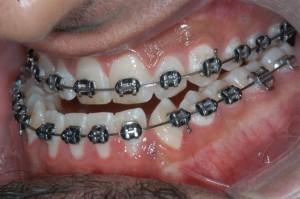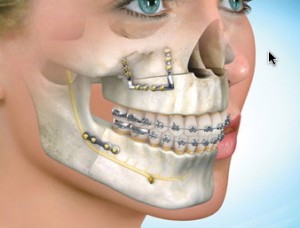Get the Bite and Smile You Want:
If your teeth do not fit well together, if you have a disproportional face, a gummy smile, an under or overbite, or a jaw size that is too big or too small, you probably have jaw problems. Many people discover these problems during their teenage years and have them corrected early. Others may postpone treatment and later develop tooth problems, facial pain, or TMJ disorders related to a poor bite.
There are many treatments available to improve facial balance, improve your aesthetics and smile, correct your bite to help you eat better, eliminate jaw or TMJ related pain, and increase your teeth health and longevity. New techniques and technology now decrease your treatment time, enhance recovery, and get you back to normal activities sooner.

Dr. Kazemi is an expert in correction of dento-facial deformities to establish correct bite, jaw size, and facial balance. He collaborates with several expert orthodontists who are leaders in their field to combine orthodontic and surgical techniques to achieve predictable results that meet your goals. Most patients can have the procedures done as outpatients, avoid jaw-wiring, and return to normal activities in as early as seven to 10 days. Insurance and payment options can make the procedure affordable.

Is Jaw Surgery Safe?
Corrective jaw surgery is safe and predictable when performed by a skilled and experienced oral surgeon. Specialized instruments and techniques are used for jaw surgery. Dr. Kazemi specializes in this procedure and has performed it successfully on hundreds of patients. The procedure is performed in a hospital under general anesthesia with a team of experienced anesthesiologists and nurses. Methodical, exacting, and detailed protocols are followed strictly to make sure every patient has a safe, comfortable, and successful procedure.
Key Information about Jaw Surgery:
- It’s best to consult with both an orthodontist and oral surgeon before treatment.
- Insurance pre-authorization and records should be sent early to determine coverage.
- The orthodontic treatment is performed with a plan for eventual surgery. Therefore, it is important to make decisions about the surgery early as those choices will affect the course of treatment.
- The procedure is performed at a hospital under general anesthesia and generally requires a one- to two-day stay.